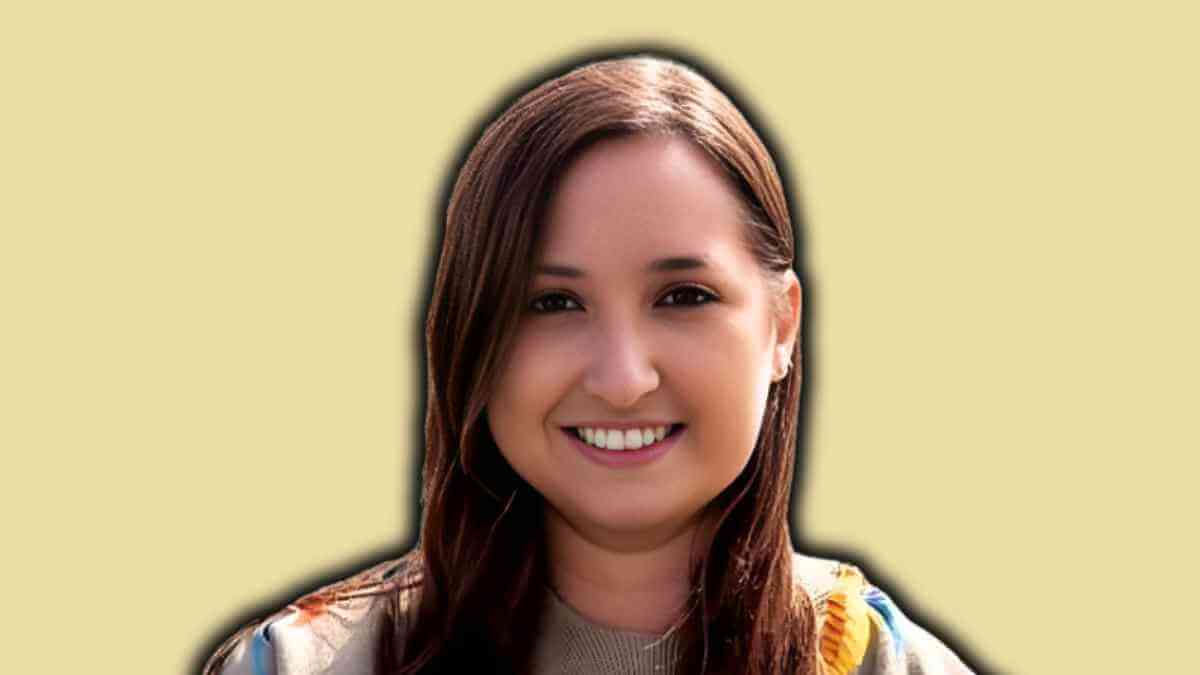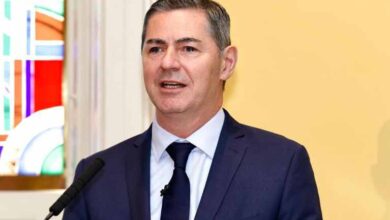Alice Hendy: A Visionary in Digital Suicide Prevention

Alice Hendy is becoming a name synonymous with hope, action and innovation in the domain of mental health and digital safety. Born from personal tragedy and driven by a resolve to transform loss into life-saving technology, she has forged a path that bridges technology, public awareness and suicide prevention.
Early Life and Personal Motivation
What defines Alice Hendy’s journey is not merely her professional skill but the deeply personal impetus behind her work. The catalyst for everything she has built is the tragic passing of her brother, Josh, to suicide in November 2020. The grief and void left by his loss did not consume her; instead, it became the foundation for radical, hopeful action.
In interviews and public reflections, she has recounted how even after Josh’s death, she found herself repeatedly searching online for help and answers. It was this very impulse to turn to the internet that sparked the question: what if technology itself could catch those searches and guide someone toward hope before they reach the point of no return?
While details of her childhood and formal education are less publicly known, it is clear that she has a professional background in cybersecurity. That technical aptitude, combined with profound personal loss, gave her a distinctive insight: digital environments are where many people wrestle silently with despair. The internet is the first port of call for countless individuals, and so it is the place where early intervention is possible.
Founding R;pple Suicide Prevention
In response to her experiences and with a fierce drive to transform them into something constructive, Alice Hendy founded R;pple Suicide Prevention in the UK. At its core, R;pple is a charity that develops “interceptive technology.” The principle is straightforward but powerful: intercept harmful or suicidal searches and intervene immediately before things spiral further.
R;pple created a browser extension that identifies self-harm or suicidal intent within search queries. When someone types in keywords associated with self-harm or suicidal ideation, it triggers empathetic messaging, encouragement, crisis helplines and redirection to mental health resources accessible around the clock.
This approach is compelling for its immediacy. Rather than waiting for someone to click through a site or post in a forum, intervening at the moment of searching is one of the earliest and most critical opportunities to step in.
R;pple operates in a delicate, difficult space and must balance privacy, sensitivity, accuracy and autonomy. Under Hendy’s leadership, it strives to ensure the technology is safe, respectful and genuinely helpful. The charity also emphasises research partnerships, open evaluation of its algorithms, pilot programmes and collaboration with existing mental health providers.
Recognition and Honours
Alice Hendy’s work has not gone unnoticed. She was awarded an MBE in the 2024 New Year Honours list in recognition of her services to online safety. This state-level recognition affirms the societal value of her mission and underscores how significant digital safety is becoming in public policy discourse.
In addition, R;pple itself received the King’s Award for Enterprise in Innovation in 2025. Such accolades not only validate the charity’s approach but also underscore the appetite at institutional levels for new models in mental health intervention.
These honours contribute to raising the profile of Alice Hendy and her organisation, enabling them to reach more stakeholders, influence policy and unlock more funding and partnerships. For her, awards represent amplified responsibility, not an endpoint.
The Philosophy Behind the Intervention
Alice Hendy’s model rests on several foundational principles. Early, non-judgemental intervention is central. Many crisis support systems rely on someone reaching out. R;pple pivots that assumption: what if the intervention comes to you at your moment of searching?
Autonomy and choice are also key. Users are never forced; instead, they are offered pathways to resources and support lines to shift their mindset. Privacy and ethics are critical. At the heart of R;pple’s design is the obligation to protect sensitive data. The tool is designed to anonymise, defer to user control and ensure that nobody’s private thoughts are exposed or exploited.
Evidence and evaluation are emphasised. Hendy works with independent researchers and institutions to test how effective interceptive technology can be—measuring metrics such as reach, click-through to support, behaviour change and mental health outcomes. Finally, scale and adaptability matter. The model is intended to be scalable across geographies, languages and platforms, evolving with how people access online content.
Challenges and Critiques
Alice Hendy and R;pple face intrinsic challenges, especially because mental health, privacy and digital environments intersect in complex terrain.
False positives and misidentification remain difficult. Distinguishing between someone seeking academic information about self-harm and someone in crisis is hard. Unintended interventions could alienate rather than help. Balancing intervention with autonomy is equally sensitive. Some critics argue that users may feel intruded upon; the design must ensure that the person retains control.
Cultural sensitivity and localisation are vital. What works in UK English may not translate to other languages or cultures. Suicide is viewed differently across societies, so interventions must be contextual and sensitive. Measuring long-term efficacy is also challenging. Showing someone a message and redirecting them is one thing; gauging whether that moment truly prevented harm requires careful longitudinal study.
Sustainability and funding are constant concerns. As with many social tech ventures, sustaining development, adaptation, maintenance and coverage requires consistent resources and philanthropic or institutional backing. Regulation and policy present further complexity. The legal frameworks around data, privacy, mental health duty of care and tech liability vary widely. Operating globally demands navigating a matrix of regulatory systems.
Hendy has been open about these constraints. She does not present her work as infallible but views it as iterative, evolving and a constant process of refining, learning and collaborating.
Key Milestones and Timeline
Several key moments mark the evolution of Alice Hendy’s mission. In November 2020, the tragic passing of her brother Josh transformed her motivation and mission. During 2021 and 2022 the early conceptual and technical development of R;pple began, bridging her cybersecurity background with her mental health aim.
By 2023 pilot programmes were under way, testing browser interoperability, messaging design, partnerships with mental health organisations and helplines. In 2024 Hendy received an MBE for services to online safety; R;pple’s visibility increased and broader public and institutional interest followed. In 2025 R;pple won the King’s Award for Enterprise in Innovation, cementing its position as an innovator at the intersection of technology and mental health.
This timeline is still unfolding. Hendy’s ambition is for R;pple to expand globally, connect with major platforms and influence how technology companies think about crisis in user behaviour.
Impact and Vision
Alice Hendy’s vision goes beyond a single tool. She seeks not just to intercept suicidal ideation but to shift societal expectations around how tech companies handle mental health. She argues that platforms have a duty of care, not just content moderation. If a user searches for terms indicating they intend to harm themselves, that moment cannot be treated as passive data—it is a signal of acute human distress that warrants intervention.
She describes a future where search engines and social media platforms themselves integrate interceptive mechanisms so that crisis signals are treated with urgency. Mental health support becomes woven into user journeys, seamlessly and respectfully. Crisis prevention becomes pre-emptive rather than reactive.
Her work is already influencing policymakers, mental health professionals, digital safety advocates and technology leaders. Early pilot outcomes show increased click-through to helpline sites, more users reading coping suggestions and case studies of people who credited R;pple with giving them pause, buying time for them to reconsider or reach out.
Media, Speaking and Public Profile
Alice Hendy has become a sought-after speaker in technology, mental health, social innovation and online safety circles. She discusses the intersections between cybersecurity, algorithmic ethics and mental health, emphasising how data and algorithms must be wielded with compassion.
She regularly gives interviews, podcasts and panel talks, sharing stories of her brother not for shock value but to humanise the narrative. Her style is candid, hopeful and direct. She speaks not only as a technologist but as someone who lives with grief and believes in the possibility of transformation through action.
Her public persona is intentionally grounded. She avoids technocratic jargon and instead focuses on the lived experience, the stakes, the hard choices and the hope behind every code update, message prompt and evaluation.
Lessons from Alice Hendy’s Work
From her journey and approach, several lessons emerge for innovators, mental health advocates and technologists. Personal loss can be fuel for impact; she transformed tragedy into mission without losing sensitivity or urgency. Intervention matters, especially early, and interceptive methods recognise the importance of the search moment. Ethics must lead design; when dealing with mental health, you cannot retrofit ethics later. Hendy embeds privacy, autonomy and choice from the start.
Iterating openly and measuring outcomes are essential. She emphasises evidence, feedback and adaptability. Collaboration is not optional; to scale and be credible, R;pple must partner with helplines, researchers, platforms and advocacy bodies. Recognition is leverage, not validation. Honours and awards are tools to expand reach, not endpoints to rest on.
These lessons resonate beyond the mental health domain: whenever technology touches deeply human experiences, a similar mindset is required.
What Lies Ahead
As 2025 and beyond unfold, Alice Hendy and R;pple are positioned for further growth and evolution. Platform integration with major search engines and browser developers to embed interceptive triggers natively is a key goal. Global expansion is likely, adapting to different languages, cultures and regulatory environments with local partners and cultural sensitivity.
There is potential for AI and machine learning to refine detection of intent using more advanced models to reduce false positives and enhance intervention accuracy. Data insights and public policy could benefit from anonymised aggregate data to advise governments, health agencies and platform regulators about crisis trends. Training and education will provide resources, workshops and toolkits to schools, tech firms and mental health providers to understand interceptive digital safety. Longitudinal studies, in partnership with universities and medical institutions, will help track outcomes over years and measure the effect on suicide rates, crisis calls and mental health service uptake.
All of these paths require funding, partnerships, policy buy-in and technical excellence. With her reputation, network and track record, Alice Hendy is among the few who can credibly lead such an ambitious project.
Conclusion
Alice Hendy stands at a rare confluence where personal tragedy, technical insight, moral purpose and strategic vision meet. She did not set out to become a mental health advocate—she became one because grief demanded it and because she saw a gap no one else was filling. Her work is at the frontier of what it means to care for mental health in the digital age, where the first sign of crisis often appears in a search bar.
Her path is not easy. Ethical dilemmas, technological limits, funding constraints and cultural variance all test the limits of what she and the wider field can do. Yet the recognition she has earned, the awards her organisation has received and the early evidence of impact suggest we are witnessing the emergence of something significant.



